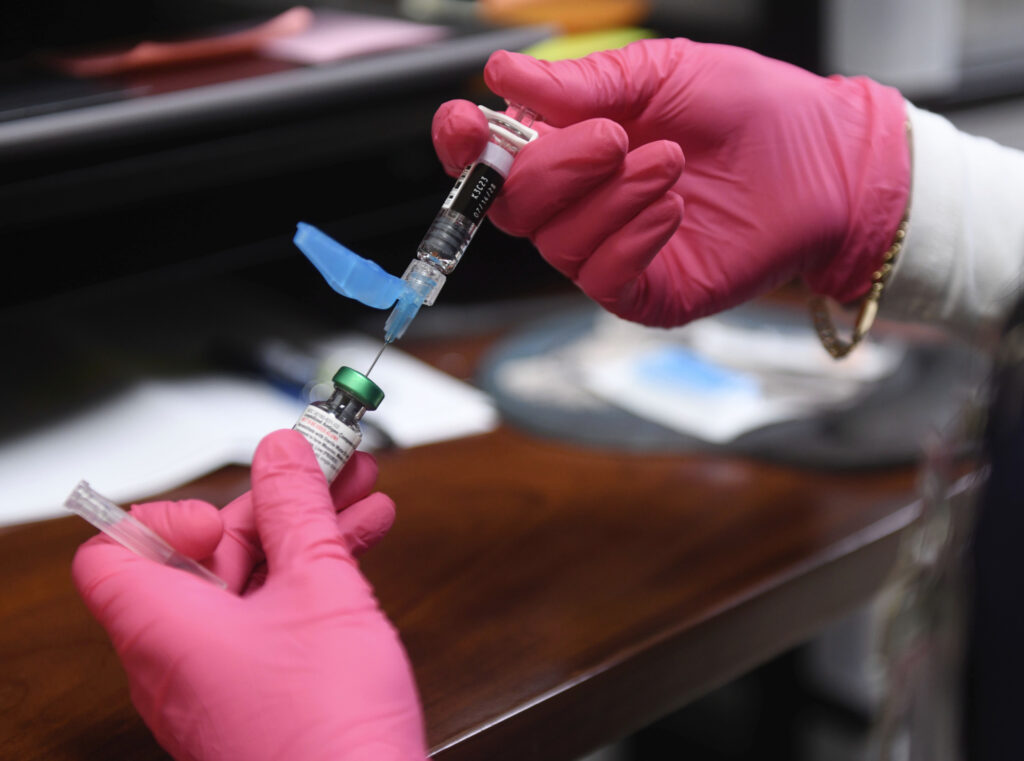Peter Hildebrand, whose 8-year-old daughter Daisy died in early April after she tested positive for measles, said he has no regrets about refusing the MMR vaccine.
“Absolutely not,” Hildebrand said when asked if he or his wife regretted not vaccinating Daisy. “And from here on out, if I have any other kids in the future, they’re not gonna be vaccinated at all.”
The comments were made during an interview published by Children’s Health Defense (CHD), a non-profit founded by Robert F. Kennedy Jr., which focuses on childhood health epidemics but is well-known for its anti-vaccination positions.
Why It Matters
The case of Daisy Hildebrand has become a focal point in debates over vaccination policy in the United States, particularly as the country grapples with its most serious measles outbreak in over a decade. Texas alone has reported more than 480 cases and 56 hospitalizations since January, according to the state health department.
Amid the public health crisis, Kennedy, now serving as Secretary of Health and Human Services, visited the Hildebrand family in Seminole, Texas, to express condolences.
Kennedy wrote on X, formerly Twitter, that he had come “to console the families and to be with the community in their moment of grief,” and emphasized that the MMR vaccine is “the most effective way to prevent the spread of measles.”
I came to Gaines County, Texas, today to comfort the Hildebrand family after the loss of their 8-year-old daughter Daisy. I got to know the family of 6-year-old Kayley Fehr after she passed away in February. I also developed bonds with and deep affection for other members of…
— Secretary Kennedy (@SecKennedy) April 6, 2025
What To Know
Hildebrand described Daisy as a playful, kind child. “Like I said earlier she was always happy, always playing—her and Jordan would always be outside playing,” he said. “She always cared about other kids too, you know? It’s going to be hard moving forward, I know that for sure, but I guess that’s our only option we got.”
Daisy was the second child to die during the ongoing measles outbreak in Texas, according to the Texas Department of State Health Services. An unvaccinated 6-year-old girl from the Mennonite community in Seminole, Texas, became the first U.S. measles fatality in over a decade when she died in February from pneumonia complications caused by measles.
A spokesperson for University Medical Center Children’s Hospital in Lubbock, where Daisy was treated, confirmed she was unvaccinated and had no known underlying health conditions.
Doctors said she died from “measles pulmonary failure,” Texas’ Health Department said in an update on April 6.
But director of programming for CHD-TV Polly Tommey, who interviewed Hildebrand, denied that Daisy or the first child died from measles, calling reports about this “fearmongering.”
She repeated debunked claims that the MMR vaccine causes autism and then alleged, without presenting specific evidence, that “they’re killing these children in these hospitals.”
“Medical error, whatever you wanna call it,” she said, “these children are being given terrible treatments that is killing them.”
Newsweek has contacted CHD, via email, to ask for evidence of Tommey’s claims, and comment.
Covenant Children’s Hospital, where the first child was treated, didn’t comment on Tommey’s latest remarks but shared a March 20 statement with Newsweek which was originally released after CHD interviewed the first child’s parents: “A recent video circulating online contains misleading and inaccurate claims regarding care provided at Covenant Children’s. Patient confidentiality laws preclude us from providing information directly related to this case. What we can say is that our physicians and care teams follow evidence-based protocols and make clinical decisions based on a patient’s evolving condition, diagnostic findings, and the best available medical knowledge.”
Newsweek has also contacted University Medical Center, via email, for further comment.
On March 2, Kennedy published an op-ed for Fox News where he said healthcare providers, community leaders, and policymakers should make vaccines readily accessible for those who want them.
“Vaccines not only protect individual children from measles, but also contribute to community immunity, protecting those who are unable to be vaccinated due to medical reasons,” he wrote.
But Hildebrand told The Atlantic that Kennedy expressed skepticism in private. “He said, ‘You don’t know what’s in the vaccine anymore,'” Hildebrand is reported to have said, “He never said anything about the vaccine being helpful.”
Newsweek has contacted the U.S. Department of Health and Human Services, via email, for a response to this on behalf of Kennedy.
What People Are Saying
Hildebrand criticized the hospital that treated his daughter, alleging that it failed to use a treatment he had requested. “They didn’t give her the budesonide breathing treatment that we’d been asking for,” he told The Atlantic. “They were saying that the IV steroids they were giving her were better.”
Immunologist Dr. Michael Mina said, “The use of budesonide to try to treat measles simply does not, biologically or mechanistically, make sense. It is much better to prevent measles in the first place through vaccination.”
Covenant Children’s Hospital said: “Measles is a highly contagious, potentially life-threatening disease that often creates serious, well-known complications like pneumonia, encephalitis and more. We urge members of the public with questions about measles to talk with a health care provider.”
What Happens Next
As the outbreak continues, Kennedy’s agency has deployed additional teams from the CDC to assist Texas and has supplied local pharmacies and clinics with more MMR vaccines. Whether those efforts will counter vaccine skepticism in hard-hit communities like Seminole remains uncertain.
Read the full article here
